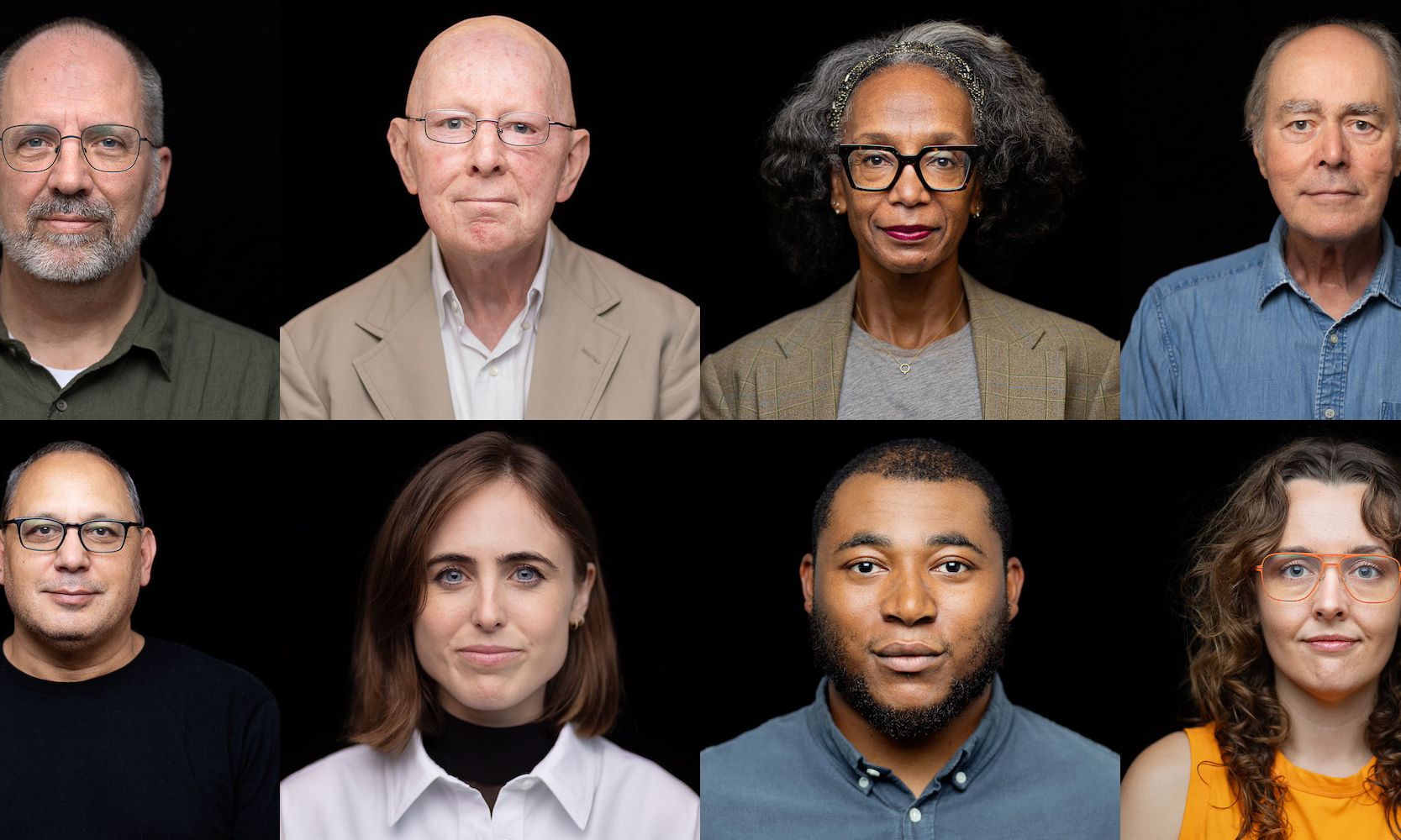Top row, left to right: Greg Allen, Holland Cotter, Robin Givhan and Thomas Lawson. Bottom row, left to right: Siddhartha Mitter, Cassie Packard, TK Smith and Emily Watlington. All photos by Kevin J. Miyazaki
The Rabkin Foundation has revealed the eight art writers receiving its annual award, the Rabkin Prize, this year. The prize comes with an unrestricted purse of $50,000. The winners in the prize’s eighth cycle are Greg Allen, who created and writes greg.org; chief New York Times art critic Holland Cotter; Robin Givhan, a senior critic-at-large for The Washington Post; the Los Angeles-based artist, writer and editor Thomas Lawson; the freelance writer and critic Siddhartha Mitter; the writer and Frieze editor Cassie Packard; TK Smith, a writer, historian and curator of the arts of Africa and the African diaspora at Emory University’s Michael C. Carlos Museum; and Emily Watlington, a writer and editor at Art in America.
Coinciding with this new cohort, the Rabkin Foundation is launching a series of interviews with prize recipients and has also commissioned portrait photographs of the winners in their work spaces, by the artist Kevin J. Miyazaki.
“We wanted to humanise the labours of these essential writers,” Mary Louise Schumacher, the foundation’s executive director and a longtime journalist (she conducted the interviews with the winners), said in a statement. “We believe arts writers are in the centre of our most essential conversations, help us think together in public, create the original field research for art history and bear witness to the value of what artists do.”
Since launching in 2017, the Maine-based Dorothea and Leo Rabkin Foundation has awarded $3.5m. Its prizes are administered through a nomination process, with writers invited to submit their work for consideration. Winners of this year’s prize were selected by a jury that included the artistic director of the New York Film Festival, Dennis Lim; rashid shabazz, the executive director of Critical Minded; and the artist Alexandra Grant.
“I'm grateful… this is going to help me continue to do the work for some period of time,” Mitter said in a statement. “The broader problem is there’s no current path to sustaining a practice as an arts writer.”

